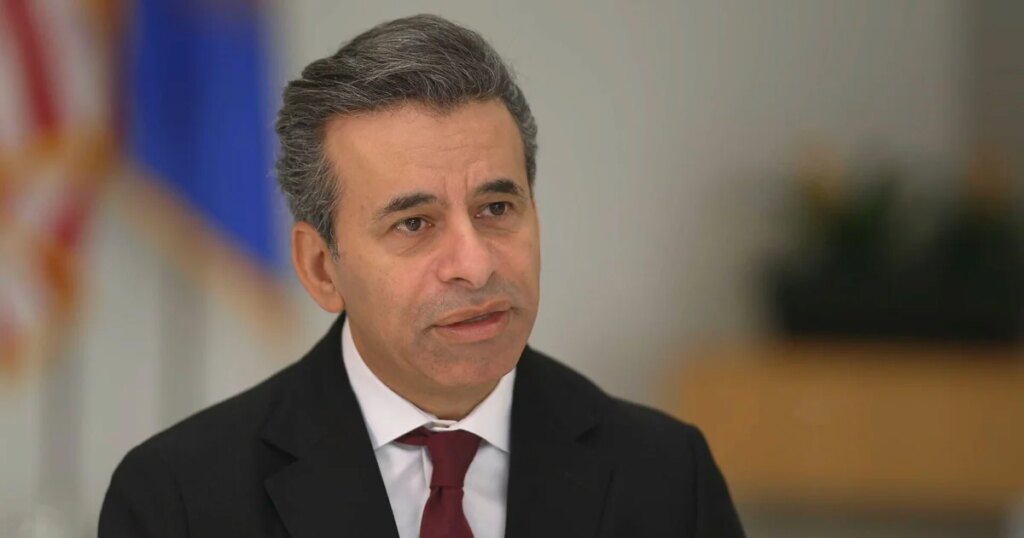On Thursday, officials praised a new plan unveiled by the White House aimed at reducing the cost of prescription drugs in the United States. This initiative, known as TrumpRx, aims to allow American consumers to purchase medications directly from pharmaceutical companies at significantly discounted prices. The announcement has drawn both optimism and skepticism from health experts and citizens about the potential impact on drug affordability and healthcare costs.
| Article Subheadings |
|---|
| 1) Overview of the TrumpRx Initiative |
| 2) Details on Drug Discounts Provided by Pfizer |
| 3) Implications for Patients with Health Insurance |
| 4) Skepticism from Experts and Patients |
| 5) Long-Term Impact on Drug Pricing |
Overview of the TrumpRx Initiative
The TrumpRx initiative was officially announced on Tuesday by the President, highlighting an agreement with the drug manufacturer Pfizer. This program aims to create a direct-to-consumer purchasing platform that allows American patients to buy medications at reduced rates. The FDA Commissioner, Dr. Marty Makary, emphasized that this initiative represents a critical move towards making medications more affordable for Americans. According to Trump, Pfizer’s participation is a significant step that could serve as a model for other pharmaceutical companies.
Details on Drug Discounts Provided by Pfizer
Pfizer’s commitment under the TrumpRx initiative is poised to deliver substantial discounts on a range of prescription drugs. The pharmaceutical giant announced that patients can expect savings of up to 85% on select medications. For instance, the menopause treatment Duavee, which typically costs $203 per month, will be available through TrumpRx for just $30. Additionally, Xeljanz, a medication for arthritis, usually priced at $6,000, is projected to sell for approximately $3,600 under the new program.
The concept driving this initiative is based on aligning U.S. drug prices more closely with those in Europe, where prices are often lower. The administration believes that this approach can alleviate some of the financial burdens associated with obtaining necessary medications.
Implications for Patients with Health Insurance
Despite the optimistic projections surrounding the TrumpRx initiative, health insurance policy experts have raised concerns regarding the practical benefits for insured patients. The administration claims that the platform will help patients struggling with high out-of-pocket costs, even if they have health insurance. Dr. Makary stated that patients often face barriers to accessing medications due to exorbitant copays, which led to the creation of this purchasing model.
For instance, Maryland resident Sarah Wisniewski, diagnosed with multiple sclerosis, illustrated the challenges many face. Even with insurance, Wisniewski reported that her coverage often failed to include necessary specialty medications, leading to frustrating denials from her insurance company. Her experience highlights a systemic issue where patients encounter barriers not only from high drug prices but also from their insurance policies.
Skepticism from Experts and Patients
The TrumpRx announcement has not been met with universal approval. Critics point out that the initiative lacks mandatory participation from all pharmaceutical companies, creating doubts about its efficacy in significantly lowering drug prices. Experts such as Stacie Dusetzina, a health policy professor, expressed concerns that the initiative might not genuinely lower most Americans’ out-of-pocket costs.
In particular, patients are wary of the actual impact of the program. Wisniewski voiced her skepticism, suggesting that without enforceable requirements for pharmaceutical companies to reduce prices, the initiative risks becoming “symbolic” rather than impactful. She mentioned that even at discounted rates of 50% to 80%, certain medications may still remain unaffordable for many individuals.
Long-Term Impact on Drug Pricing
As the Trump administration rolls out the TrumpRx program, health economists remain cautious about its long-term implications for drug pricing. Economists like Sean Sullivan have termed the program’s potential savings as limited, noting that a majority of patients are already covered by insurance is not likely to benefit from cash purchases.
Moreover, the administration’s goal of significantly cutting prices on at least some drugs is viewed by Makary as a long overdue reset for the healthcare system, which has faced escalating costs over several decades. “Each year, we throw good money after bad into a broken system,” Makary stated. He believes that addressing high drug prices can pave the way for more comprehensive reform in the healthcare landscape.
| No. | Key Points |
|---|---|
| 1 | The TrumpRx program aims to lower prescription drug costs significantly for American consumers. |
| 2 | Pfizer has committed to providing discounts on various medications, with significant savings projected for certain drugs. |
| 3 | Patients with health insurance still face barriers to obtaining affordable medications, as illustrated by personal experiences. |
| 4 | Skepticism exists about the TrumpRx initiative’s capacity to effectively compel drug manufacturers to significantly reduce prices. |
| 5 | Economists are wary of the program’s long-term effects and question the depth of its intended impact on overall healthcare costs. |
Summary
The TrumpRx initiative represents a significant effort by the administration to tackle escalating prescription drug costs in the U.S. Through a collaboration with Pfizer, the program aims to create a platform where patients can buy medications at reduced prices. Despite the announcement’s optimistic tone, skepticism persists regarding the program’s practical benefits and long-term effects on drug pricing and healthcare costs. As the program prepares to launch next year, many will be closely monitoring its implementation and impact on American consumers.
Frequently Asked Questions
Question: What is the TrumpRx program?
The TrumpRx program is an initiative aimed at allowing American consumers to purchase prescription medications directly from pharmaceutical companies at discounted prices.
Question: How significant are the projected discounts on medications?
The TrumpRx program is expected to provide discounts of up to 85% on select medications, offering substantial savings for consumers.
Question: Why are some experts skeptical about the program?
Experts express concerns that the program may not enforce participation from all pharmaceutical companies and question whether it will genuinely lower drug prices for most Americans.


